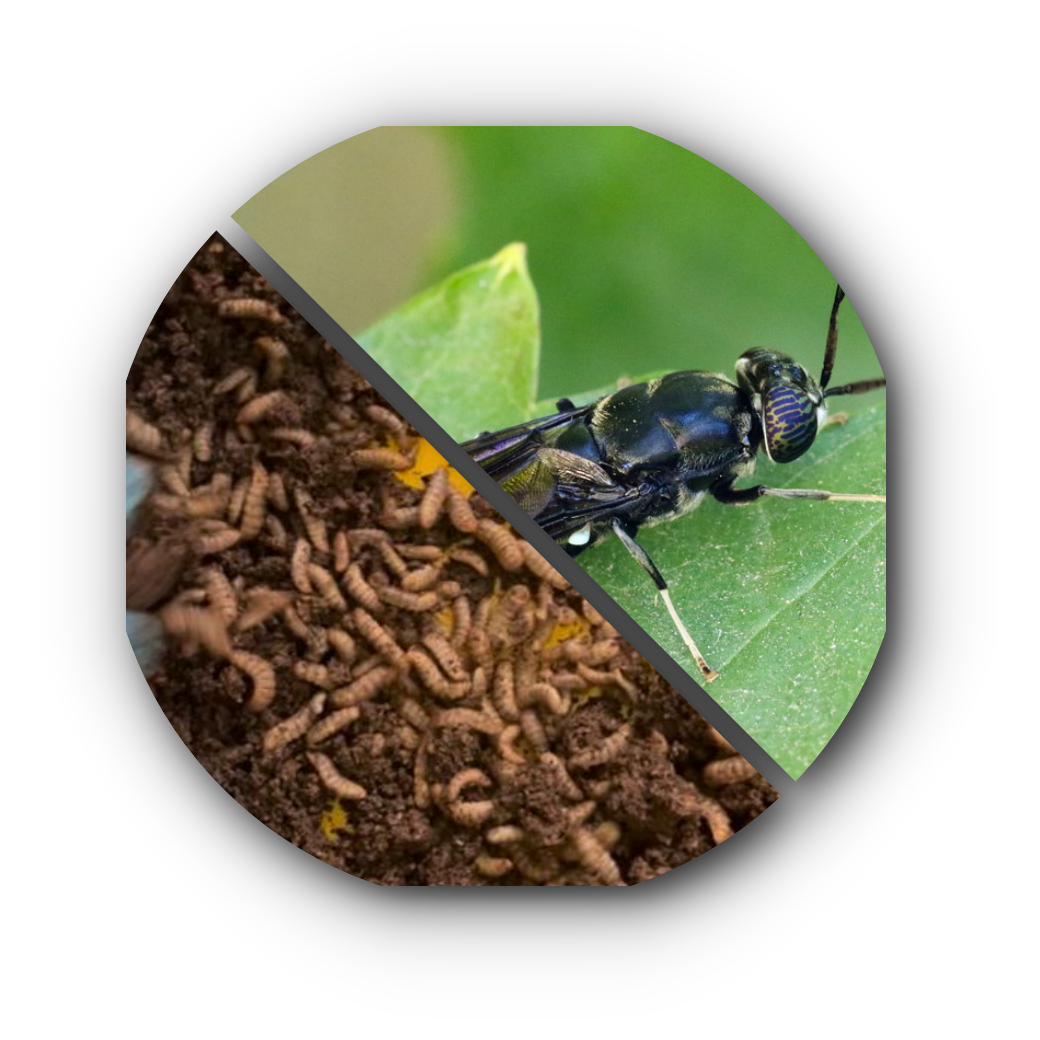Black Soldier Fly
- ♻️ Waste Crisis: BSF turn trash into treasure – naturally
- 💊 Antimicrobial Resistance: 10M deaths/year projected by 2050 – BSF AMPs show promising alternatives
- 🌱 Circular Economy: They transform low-value organics into feed, fertilizer and biomaterials
BSF represent one of nature’s most efficient biorefineries, offering transformative solutions to some of humanity’s greatest challenges. At a time when global food waste exceeds 1.3 billion tonnes annually while malnutrition persists, BSF larvae demonstrate an unmatched ability to convert low-value organic matter into high-quality protein, fats, and bioactive compounds. Their rapid growth cycle, maturing from egg to prepupa in just 14-18 days, enables efficient scaling that traditional livestock cannot match, requiring 90% less land and water than conventional protein sources.
The environmental implications of BSF adoption are profound. As climate change accelerates, BSF systems present a rare win-win scenario: reducing methane emissions from decomposing waste while producing sustainable animal feed to replace carbon-intensive alternatives like soybean meal and fishmeal. Research shows BSF larvae can process diverse waste streams, from agricultural byproducts to food manufacturing waste, diverting organic matter from landfills where it would otherwise generate greenhouse gases. Their ability to thrive on varied substrates makes them adaptable to local conditions worldwide, from tropical farms to urban waste facilities.
From a health perspective, BSF-derived antimicrobial peptides (AMPs) offer a promising solution to the global antibiotic resistance crisis. With livestock accounting for over 70% of antibiotic use worldwide, BSF AMPs provide a natural alternative that attacks pathogens through multiple mechanisms, significantly reducing the likelihood of resistance development. Early studies demonstrate their efficacy against dangerous pathogens like MRSA and E. coli while being biocompatible with animal digestive systems. This positions BSF not just as waste processors, but as potential game-changers in preventive livestock healthcare.
Economically, BSF systems create circular value chains that benefit multiple stakeholders. Smallholder farmers gain access to affordable, homegrown protein feed, reducing dependence on volatile global commodity markets. Municipalities can lower waste management costs while generating new revenue streams from insect-based products. The larvae’s byproducts, including their nutrient-rich frass, serve as organic fertilizers, completing the nutrient cycle and improving soil health. As global demand for sustainable protein grows, BSF technology offers developing nations an opportunity to leapfrog traditional, resource-intensive agricultural models.
Perhaps most importantly, BSF systems embody the principles of a true circular economy. They transform linear “take-make-waste” systems into closed loops where outputs become inputs, mimicking nature’s own efficiency. As we face the twin challenges of feeding 10 billion people by 2050 while staying within planetary boundaries, black soldier flies offer a scalable, sustainable solution that works with ecological processes rather than against them. Their potential extends beyond waste management and animal feed, into pharmaceuticals, bioplastics, and other value-added applications we’re only beginning to explore.
